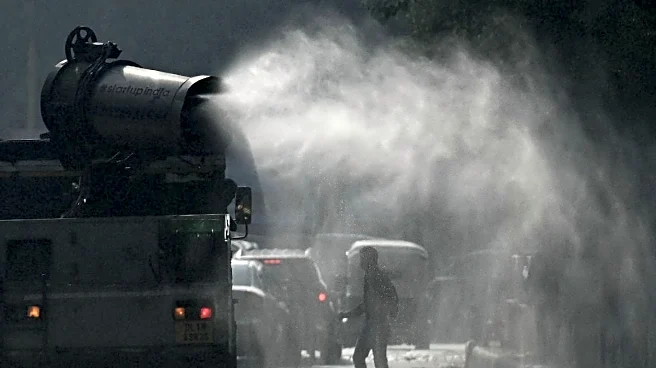The Delhi government’s Public Works Department (PWD) has ramped up its efforts to combat the capital’s recurring air pollution crisis, announcing a major initiative to hire 200 truck-mounted anti-smog guns at an estimated cost of Rs 5.88 crore. The move, finalised in a recent departmental order, aims to tackle the severe dust and particulate matter that plague the city, particularly during the critical winter months.
The deployment of these specialised water-sprinkling devices is slated to begin shortly and run for a five-month period. According to PWD officials, the machines will operate in two daily shifts of eight hours each across all 11 zones under the department’s jurisdiction. This round-the-clock operation is intended to provide continuous
mitigation of road dust, which is a major contributor to the city’s high Air Quality Index (AQI) levels.
An anti-smog gun works by spraying atomised water—releasing ultra-fine droplets in the range of 10 to 30 microns—into the atmosphere. These tiny water particles bind with suspended particulate matter, including PM 10 and PM 2.5, making them heavy enough to settle on the ground and thus clearing the air.
The tender specifications issued by the PWD detail the required capability of the machines, mandating a throw power of no less than 50 metres horizontally and the ability to tilt 60 degrees vertically. Each machine will be fitted with a dedicated water tank and utilise multiple stainless-steel nozzles to maximise the water atomisation effect. The order also mandates that the machines must display environmental messages for public awareness while operational.
While the large-scale deployment demonstrates the government’s commitment to providing visible, immediate pollution relief, the efficacy of anti-smog guns remains a subject of debate among environmental experts. Critics argue that while the machines are highly effective in localised settings, such as construction and industrial sites where dust is coarse and concentrated, their impact on reducing the pervasive, fine particulate matter across a vast metropolitan area like Delhi is limited.
Nevertheless, the PWD’s strategy forms part of the government’s broader emergency plan to control air pollution, which also includes mechanical road sweeping and strict enforcement of anti-dust norms at construction sites. The expenditure of Rs 58,834,480 underlines the urgency and financial commitment being made to execute these measures during the critical pollution season.


/images/ppid_59c68470-image-17708350320838052.webp)




/images/ppid_59c68470-image-177083752855419301.webp)

/images/ppid_59c68470-image-177083752668871927.webp)


/images/ppid_a911dc6a-image-177083556748629873.webp)

/images/ppid_a911dc6a-image-177083563836656334.webp)
/images/ppid_a911dc6a-image-177083553466311808.webp)